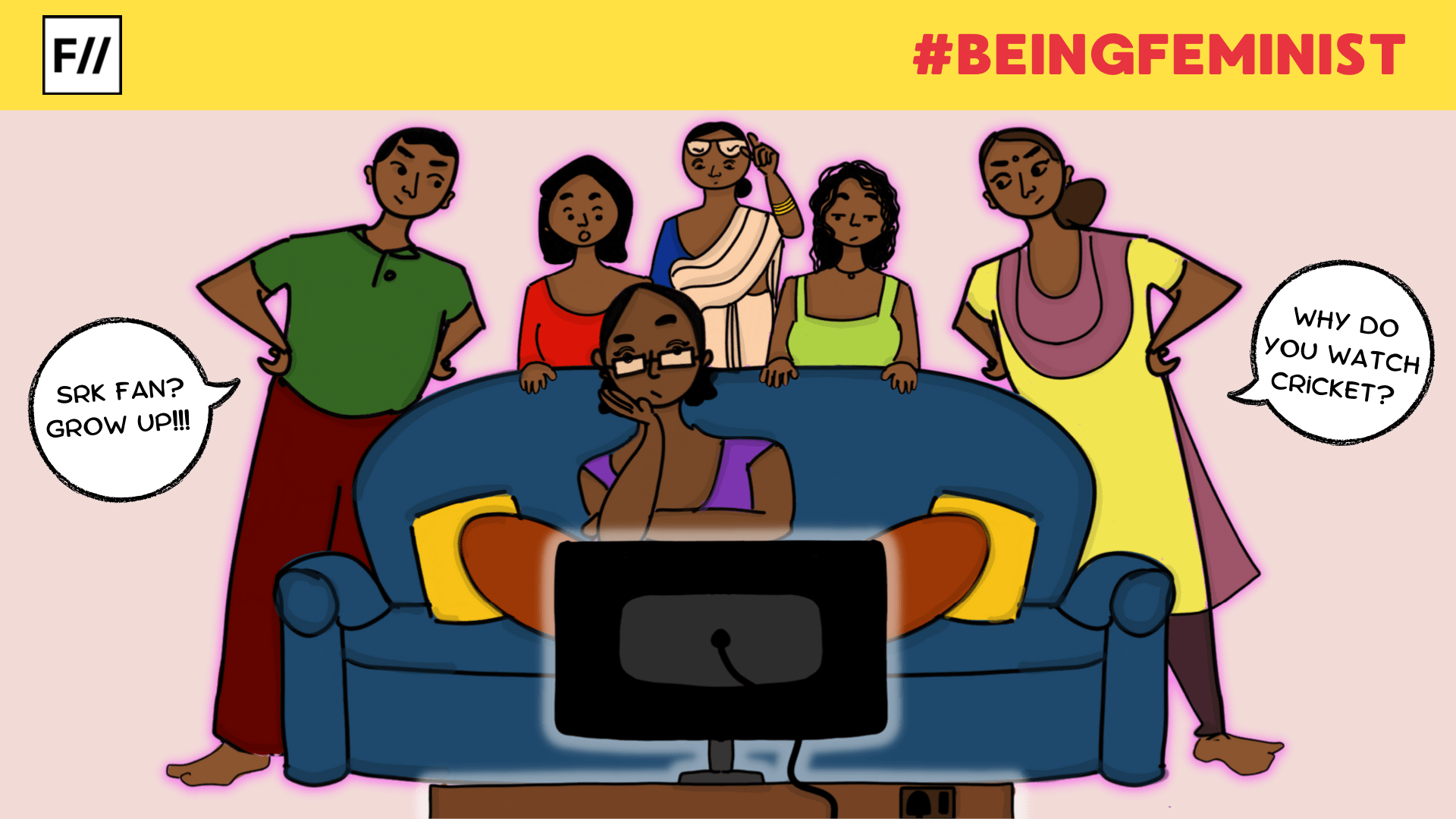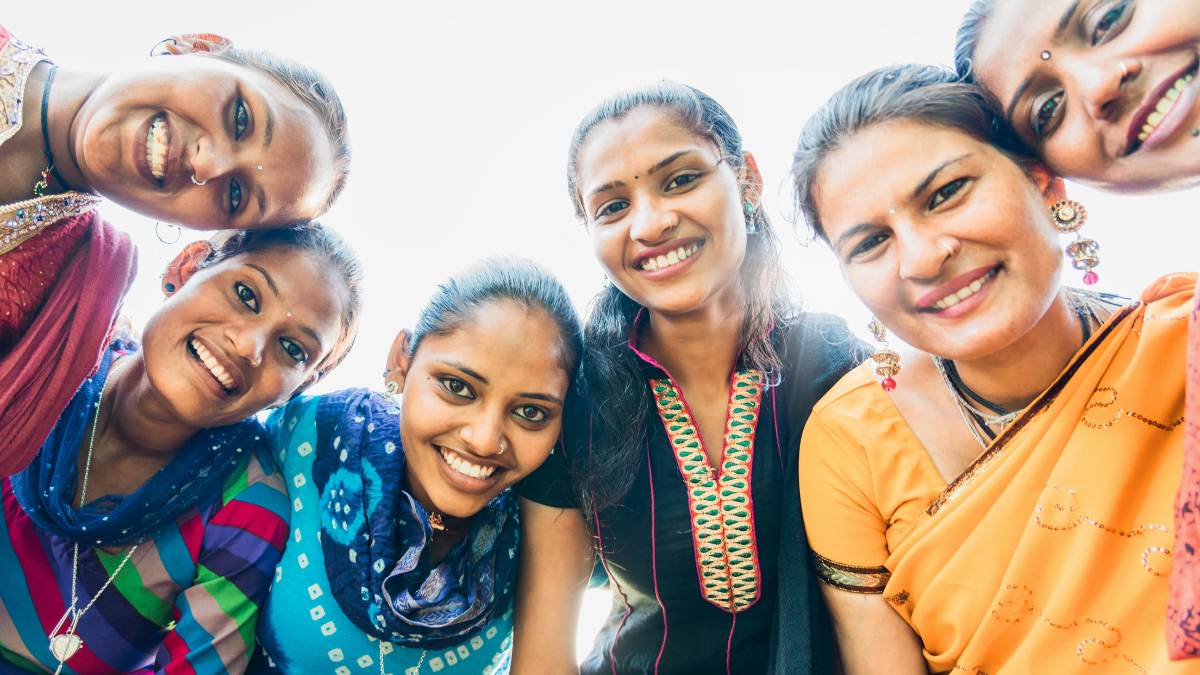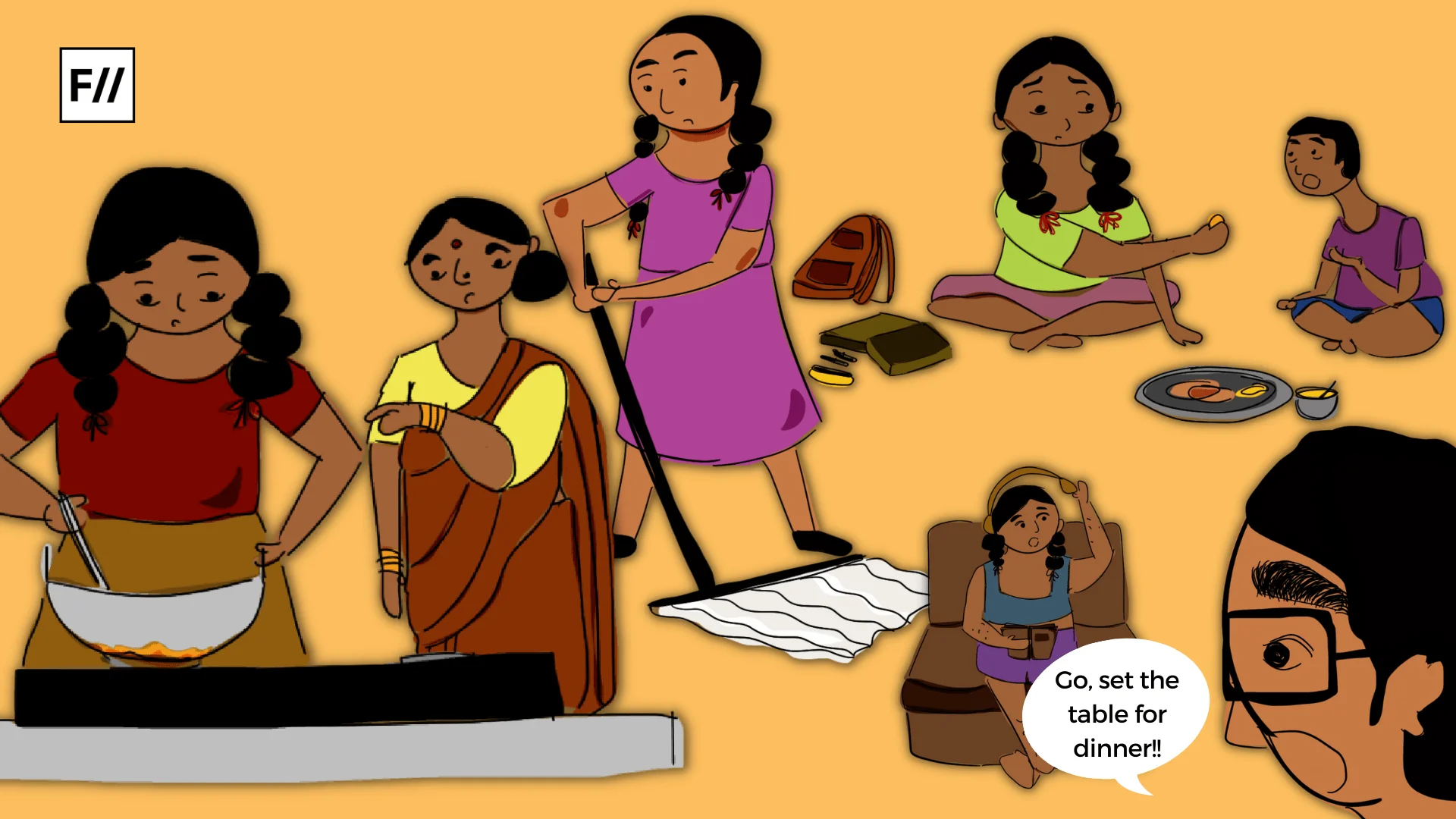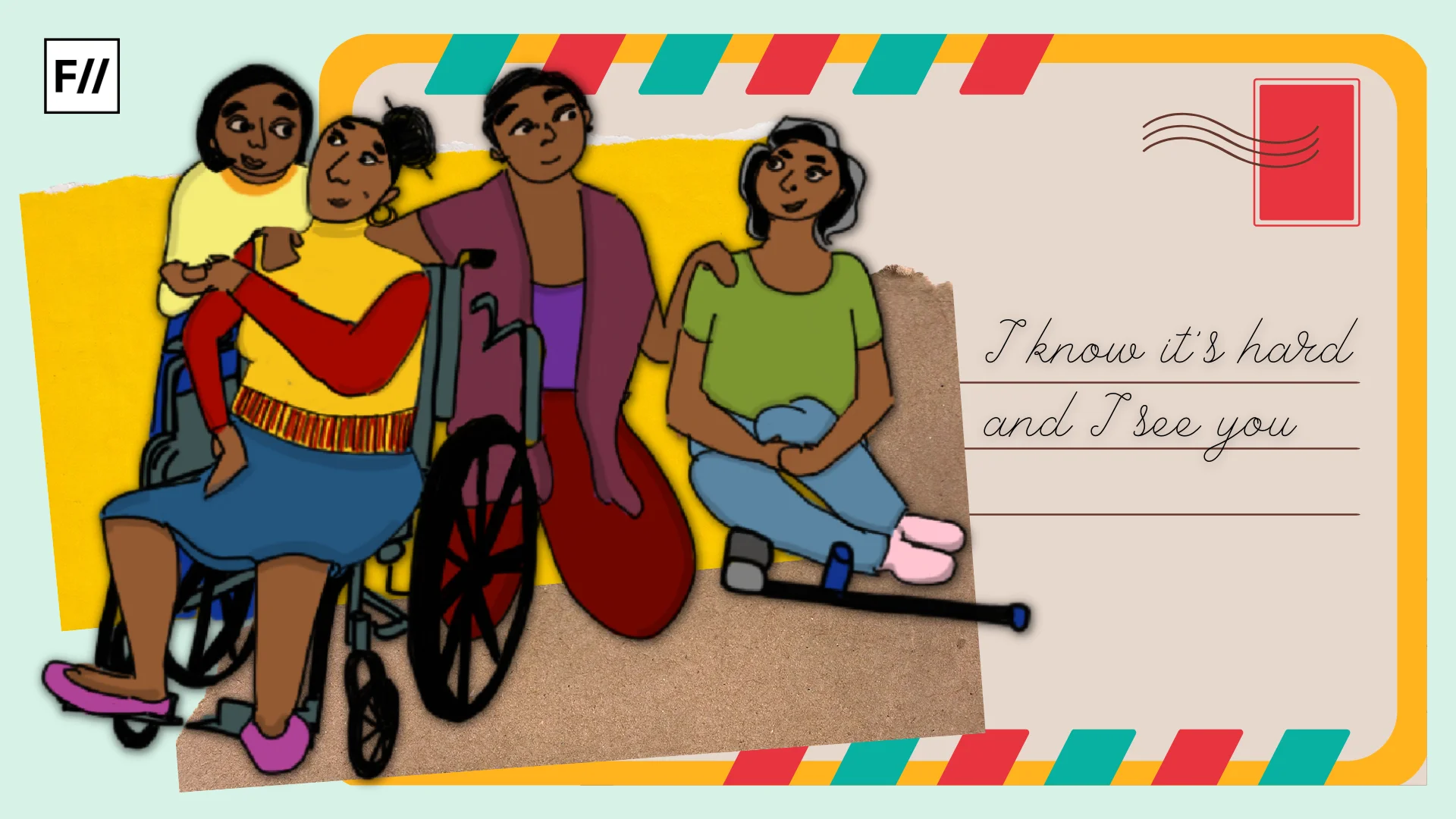Editorial Note: Being Feminist is a fortnightly column that features personal narratives documenting the emotions, vulnerabilities and innermost contradictions every feminist encounters while trying to push through various degrees of patriarchy in private, professional and public spaces.
“What does feminism mean to you?” – this is a question that has been thrown at me time and again, sometimes with general inquisition, but in most cases, with a tinge of taunt. The ordeal of explaining “my feminism”, to prove if I am a “good feminist” or not is a tedious, constant process by virtue of being a journalist who covers gender.
Amidst all the chaos, questions, counter-questions, taunts, judgments, and chiding remarks, I have asked myself the same question. What indeed is my feminism? And why is it always in conflict?
For me, my experience of feminism has always existed within conflicts – Is gleefully enjoying Shah Rukh Khan movies not feminist? Does being part of the fandom of a cis-het Bollywood icon make me a bad feminist? Does religiously watching organised sports make me less feminist? Is following an inherently capitalistic tournament like the IPL, taking the right to call myself a feminist away from me?
These conflicts have overarched personal, professional, and public boundaries. They have cropped up while deliberating posting something on social media and putting this ‘conflicting’ self out there, in the fear of being chided.

Growing up withdrawn, scared, and doubtful of everything and everybody around, without a sense of self, home or stability, finding an anchor was a constant and tiring search. That search is what led me to find solace, an escape in sappy Shah Rukh movies and cricket. In retrospect, I have realised that it was also the only time the chaotic household would sit down together. The minutest glimpse of what is called ‘normalcy’ was displayed on these occasions.
Hence ended the need for an anchor. Something that started as a search for stability and a sense of family as a child transformed into a unilateral friendship with an actor and a cricket team. In my head, this was a friendship that would not disappoint because of the nature of it being one-sided. Over the years, whenever things got tough, these two outlets were what I turned to.
With time, I developed an understanding of feminist, intersectional sensibilities, and the realities of our socio-political scenario. Such insight also comes with a sense of conflict and a fear of judgment – a sense of shame while trying to indulge in things that were once an escape.
The development of various sensibilities also makes you realise the problematic working of things you have liked. Shah Rukh Khan is not a feminist icon, neither is cricket or any organised sporting event, an intersectional space. There are multiple layers of systemic oppression, problematic portrayal, misogyny, masochistic idealism, and both overt and covert sexism deep within the roots of both cricket and the mainstream film space Shah Rukh Khan represents
Pop culture and sports have had a history of providing a sense of community and escape to people. There have been multiple studies proving how these they have played a major role in cultivating a strong sense of belonging among those who consume them. But at the end of the day, the capitalistic society that we are part of, leverages everything with consumerist lens. The essence and charm of fandoms remain lost in their brand positioning.
In a professional workspace, when you are part of the ‘worldly world’, the sense of conflict and shame to be part of ‘fandoms’ does not just come from being constantly critical about the workings of it, but also the fact that fandoms are looked at as something silly and something one must outgrow.
There of course is also a gendered dismissal of being a woman and associating with fandoms of predominantly male figures. Your are at the receiving end of comments like, “Oh! You like cricket because you want to watch men run around, right?”, “Oh! but it’s so silly to call yourself an SRK fan. Grow up you are an adult now.”
Also read: Misogyny In Sports Fandoms: The Trivialisation Of Female Fans In Popular Culture

Why are women who like sports or indulge in the work of a male actor chided? Why is it always narrowed down to a sexualised gaze? These questions have long plagued me. On the other side of these questions is also a social dichotomy where women who are interested in sports are looked at as “better than others” and not as “silly” as those who likes movie stars.
For the longest time, I was caught in between these poles, unable to claim neither my love for sports or my favourite movie star. I could only express a part of myself, depending on who the interaction was with. When you are a female journalist who covers sports, it is “niche”, but when you giggle over SRK, it is “boring and overdone”. This constant questioning and self-doubt about why I like what I like, whether it is just an attempt to seem different, finally weighed down and prevented me from publicly claiming affinity to either of these things that were dear to me.
The development of various sensibilities also makes you realise the problematic working of things you have liked. Shah Rukh Khan is not a feminist icon, neither is cricket or any organised sporting event, an intersectional space. There are multiple layers of systemic oppression, problematic portrayal, misogyny, masochistic idealism, and both overt and covert sexism deep within the roots of both cricket and the mainstream film space Shah Rukh Khan represents.
It is impossible to have a linear, singular conscience to interact with a world that keeps getting problematic each day. It is okay to find joy in the little things – to watch and engage with movies and matches without overlooking or neglecting the problematic ideas they portray and promote. It is not a black and white, either-or situation. Rather, it is important to engage with awareness and be critical of the things that are not okay. Our icons must be called out for their problematic representations. We must engage in entertainment with awareness. But perhaps we must also give ourselves space to acknowledge the joy that these outlets have provided us
These revealing thoughts further made me isolate myself from them. An escape from the escape is what I like to call it. Days, months and years, every time the urge surfaced, I self-policed and told myself, “You cannot, you are to be a good feminist. And good feminists don’t giggle at Shah Rukh songs, or jump out of chairs and celebrate when their team wins.“ I convinced myself that being part of “silly” fandoms was not political, and as an individual, as a feminist, I am to be more responsible.
In the present socio-political scenario, multiple people have come out in support of Shah Rukh Khan, and the internet has been flooded with everyone having an ‘SRK story’. I did have a lot to say, a lot to write, a lot to express, but somewhere the voice inside my head made me stop.
Is it really so hard to be an SRK fan and also be a feminist? Why can’t these two things happen in tandem? Why is it so hard to explain this duality – that I can respect Shah Rukh Khan as an artist or an icon, uphold his right to exit, enjoy some of his films and groove to his songs, while also being critical and not endorsing everything he says or does? Why should the fan and the feminist exist in conflict?
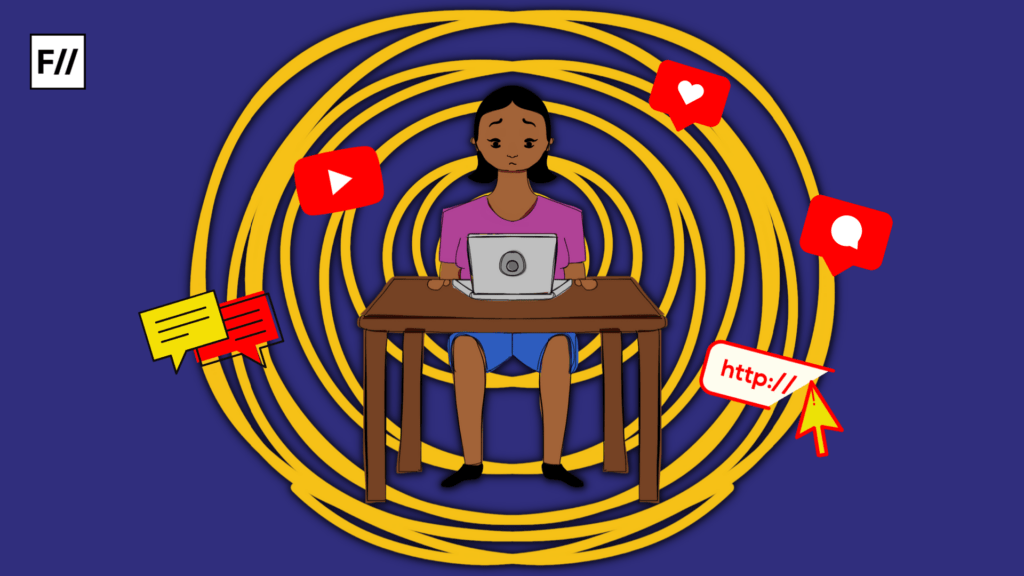
As young adults, especially women, we are always told to be doubly careful about what we say, what we express. We are told to keep a check on our self-love as it is “narcissistic” and a “sign of vanity”. The past year has made me question this belief and try and go to the roots of it. Why is it that when a man talks about what he loves, it is applauded, and when a woman does the same, it is shrugged?
Patriarchy likes to see women as passive participants in the society, and being vocal about something you like is an act of claiming space. Women claiming space has for long been the worst nightmare of the patriarchal society. Hence, a woman’s self-love and self-assertion is political.
Over the past year, my struggle with mental health reached a point where things got really isolating. The loss of a sense of self prevailed like never before. In the midst of that, I once again after years of hiatus, turned to the two things that have been my escape – Shah Rukh Khan and cricket. But this time it was different. This time, the reclaiming of these two entities meant claiming space. It meant fighting back against the conflict and policing both by the self and others. It was an act of self-care and self-love.
For me, the star and the sport were never just limited to their outward identity. They epitomise my inner struggle, the struggle to hold ground. Of course, Bollywood, Shah Rukh Khan and his movies, are problematic. They are exclusionary narratives. Of course, cricketing bodies are money-minting machines propagating deeply problematic ideas of masculinity. The critique is absolutely correct.
As much as I have found recluse in these outlets, I have also been able to be harshly critical of them. But this conflict and criticism that come out of it do not make me a bad feminist.
It is impossible to have a linear, singular conscience to interact with a world that keeps getting problematic each day. It is okay to find joy in the little things – to watch and engage with movies and matches without overlooking or neglecting the problematic ideas they portray and promote. It is not a black and white, either-or situation. Rather, it is important to engage with awareness and be critical of the things that are not okay. Our icons must be called out for their problematic representations. We must engage in entertainment with awareness. But perhaps we must also give ourselves space to acknowledge the joy that these outlets have provided us.
My journey towards my feminism has come hand in hand with me coming to peace with my inner conflict, reclaiming my love for the icon that Shah Rukh is, and my passion for cricket, without feeling ashamed. I also indulge in these pursuits with an acute sense of awareness, a critical lens and make sure I do not mention them without calling them out when they must be. As a woman, feeling for myself, being kind to myself, and acknowledging the dichotomies of my emotions is political, and it is feminist.
Featured Illustration: Ritika Banerjee for Feminism In India
About the author(s)
Shriya is a former student of literature and a multimedia journalist with an interest in sports and human rights. She can be found watching Shah Rukh Khan movies or listening to Ali Sethi and 90s Bollywood songs. She enjoys a good cup of black coffee multiple times a day and is often compared to 'Casper, the friendly ghost'.
